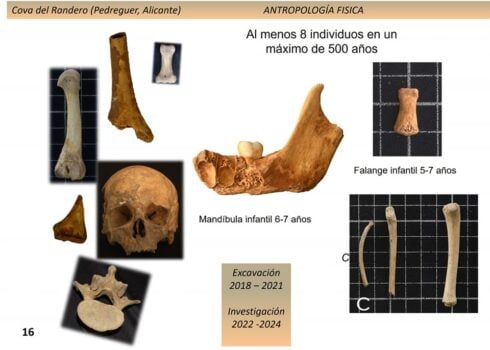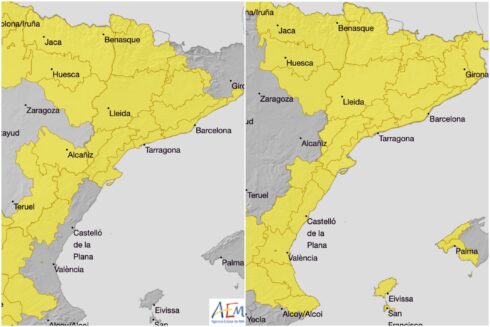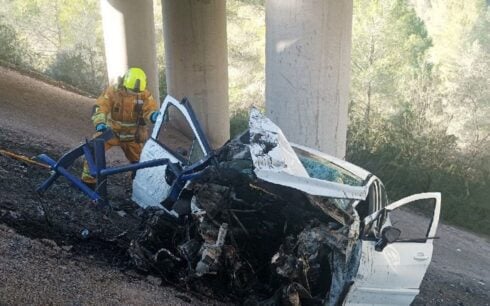THE first evidence of child cannibalism in eastern Spain over 6,400 years ago has been confirmed in an Alicante province cave.
This follows extensive scientific tests following two discoveries during ongoing excavations at the Cova del Randero in Pedreguer.
The area was used as a butcher’s shop with shepherds bringing in livestock to be slaughtered.
READ MORE:

In 2018 a human jaw believed to be from a child aged six or seven years was found there.
It had been processed in the same way that goats and sheep were before being served up as food.
Experts discovered that the jaw had human bite marks on it.
In 2021, the ulna of a newborn child was found that showed signs of a cannibalistic ritual, which may well be a unique discovery in Spain.
The human bites were identified by a team that specialised in bite marks on animals.
Rafael Martínez, head of Archaeology at the Valencian Institute of Conservation, Restoration and Research said: “The marks were made on fresh bone shortly after the death of the two children.”
“They are characteristic stigmata, and very clear evidence of human manipulation with a very significant presence in the Cova del Randero,” he added.
Excavation work has been funded for the last 14 years by the Alicante Provincial Council.
Joint-project leader, Jorge Soler, explained that cannibalism was a relatively common activity during the Neolithic period throughout Europe, but mainly concentrated in Andalusia as far as the Iberian Peninsula was concerned.
The general consensus about the Cova del Randero discoveries is that they were part of ritualistic activities linked to funeral mourning.
Soler’s colleague, Consuelo Roca de Togore, said: “There was a thought where death is projected into life and makes the memory of a living and loved being its own”.
The site consists of an exterior room and several interior rooms.
“The outside was intended for livestock,” explained Soler, “and the inside ones were the shepherds’ rooms”.










